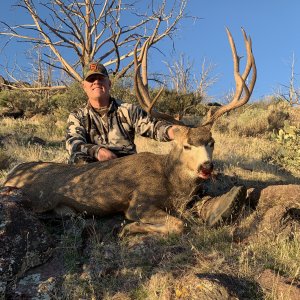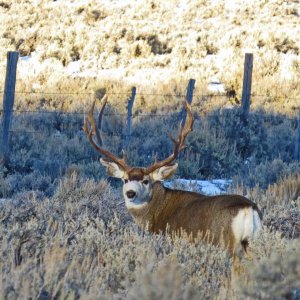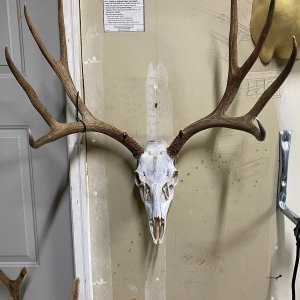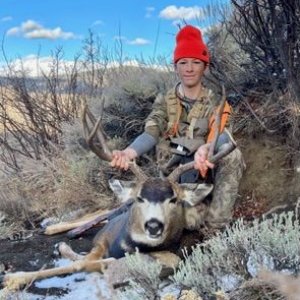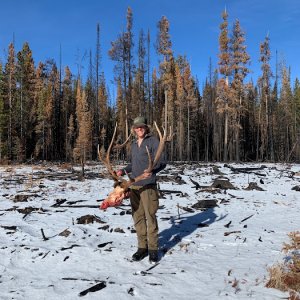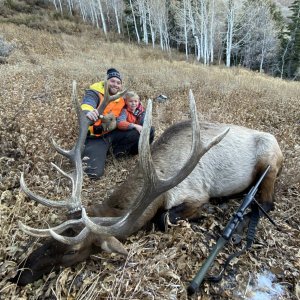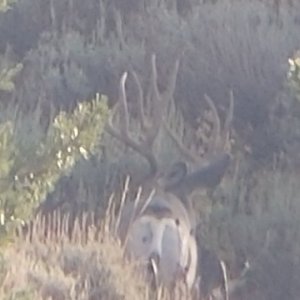1911
Long Time Member
- Messages
- 6,197
...as to which way the wind will blow on this legislation.
SALT LAKE CITY (AP) -- Utah Gov. Gary Herbert says he won't let a family connection to a bill that would alter access to Utah waterways sway his decision on whether to sign it.
Herbert's sister and brother-in-law, Connie and Steve Ault, own property along the Provo River. They actively fought for a bill restricting access to rivers and streams that cross private land. The legislation would allow landowners to post signs and close off access to the waterways unless that area has been open for public use for 10 consecutive years since 1982.
Herbert has until Wednesday to sign the bill, veto it or let it go into law without his signature.
Herbert says it doesn't matter what his family says about the bill.
"This bill, for them personally, has absolutely zero effect," Herbert said. "It doesn't matter to me what they say."
Steve Ault said he and his wife got involved in the issue because filth was being left behind on their land.
But he said he and his wife don't plan to try to prevent fishing on the river and they haven't put any pressure on Herbert to sign or veto the bill.
"We try to keep family and politics separate. Some things, of course, intermix," said Steve Ault. "I have told him, 'You do what's in the best interest of the state.' That's all we can expect."
For generations, waters in Utah have been publicly owned and those who want to use them for fishing, boating or other recreation activities have been guaranteed access to the rivers and streams.
In 2008, the Utah Supreme Court ruled that the public has a right to fish, hunt and float the waterways, including incidental contact with privately owned stream beds.
Private landowners objected, saying the ruling eroded their property rights. This legislative session, property owners succeeded in getting a bill passed to change the law.
Several lawmakers who supported the change own land that might be affected by the bill, including Reps. Gage Froerer, R-Huntsville, Mel Brown, R-Coalville, Ben Ferry, R-Corinne, and Mike Noel, R-Kanab.
Rep. Kay McIff, R-Richfield, the sponsor of the legislation, said he believes the 2008 Supreme Court decision harmed constitutionally protected property owners' rights and his legislation was an attempt to restore those rights.
Outdoors groups are urging Herbert to veto the bill.
Herbert has acknowledged that he is being pressured on the bill and wondered if the bill strikes the right balance.
"I think there's concern about the stream access. It's got a lot of energy out there," he said. "We've created a kind of situation where we're adversarial, and I think it's a few that spoil it for the many. There are probably some issues there from a legal standpoint that need to be reviewed to make sure we're doing it exactly right. At the same time, you've got to respect private property rights. That's what's made America great."

SALT LAKE CITY (AP) -- Utah Gov. Gary Herbert says he won't let a family connection to a bill that would alter access to Utah waterways sway his decision on whether to sign it.
Herbert's sister and brother-in-law, Connie and Steve Ault, own property along the Provo River. They actively fought for a bill restricting access to rivers and streams that cross private land. The legislation would allow landowners to post signs and close off access to the waterways unless that area has been open for public use for 10 consecutive years since 1982.
Herbert has until Wednesday to sign the bill, veto it or let it go into law without his signature.
Herbert says it doesn't matter what his family says about the bill.
"This bill, for them personally, has absolutely zero effect," Herbert said. "It doesn't matter to me what they say."
Steve Ault said he and his wife got involved in the issue because filth was being left behind on their land.
But he said he and his wife don't plan to try to prevent fishing on the river and they haven't put any pressure on Herbert to sign or veto the bill.
"We try to keep family and politics separate. Some things, of course, intermix," said Steve Ault. "I have told him, 'You do what's in the best interest of the state.' That's all we can expect."
For generations, waters in Utah have been publicly owned and those who want to use them for fishing, boating or other recreation activities have been guaranteed access to the rivers and streams.
In 2008, the Utah Supreme Court ruled that the public has a right to fish, hunt and float the waterways, including incidental contact with privately owned stream beds.
Private landowners objected, saying the ruling eroded their property rights. This legislative session, property owners succeeded in getting a bill passed to change the law.
Several lawmakers who supported the change own land that might be affected by the bill, including Reps. Gage Froerer, R-Huntsville, Mel Brown, R-Coalville, Ben Ferry, R-Corinne, and Mike Noel, R-Kanab.
Rep. Kay McIff, R-Richfield, the sponsor of the legislation, said he believes the 2008 Supreme Court decision harmed constitutionally protected property owners' rights and his legislation was an attempt to restore those rights.
Outdoors groups are urging Herbert to veto the bill.
Herbert has acknowledged that he is being pressured on the bill and wondered if the bill strikes the right balance.
"I think there's concern about the stream access. It's got a lot of energy out there," he said. "We've created a kind of situation where we're adversarial, and I think it's a few that spoil it for the many. There are probably some issues there from a legal standpoint that need to be reviewed to make sure we're doing it exactly right. At the same time, you've got to respect private property rights. That's what's made America great."





